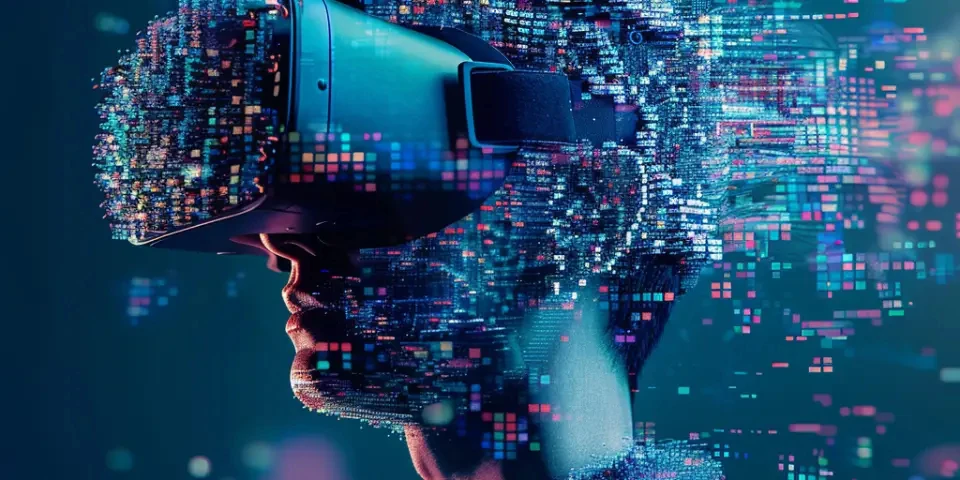Artificial Intelligence (AI) has emerged as a game-changing technology across various industries. One area where AI is making remarkable strides is storytelling. With its ability to process vast amounts of data, analyze patterns, and generate compelling narratives, AI is revolutionizing how stories are created and consumed. In this article, we will explore how AI is transforming storytelling from multiple perspectives.
1. Enhanced Personalization
AI algorithms can analyze user data, such as browsing history, social media interactions, and preferences, to create personalized stories tailored for individual readers. This level of personalization enables deeper engagement and resonance with the audience, making storytelling more immersive and captivating.

Furthermore, AI-powered recommendation systems can suggest stories based on user preferences, introducing readers to new genres, authors, or even lesser-known narratives, thereby broadening their literary horizons.
2. Generating Creative Ideas
AI algorithms can sift through vast databases of existing stories, identify trends, and generate fresh and innovative story ideas. By leveraging natural language processing and machine learning techniques, AI systems can stimulate creativity and assist writers in overcoming writer's block.
Additionally, AI-powered tools like ChatGPT or OpenAI's MuseNet can collaboratively brainstorm with writers, generating ideas, characters, and even entire plotlines. This fusion of human imagination and AI assistance has the potential to create truly unique and captivating narratives.
3. Automated Content Creation
AI-powered content generation tools offer a revolutionary way to create stories at scale. These tools can automatically generate articles, news updates, or even short stories based on predefined parameters and inputs. This not only saves time for content creators but also ensures a consistent output in terms of quality and style.
However, while these tools expedite the content creation process, it is essential to maintain a balance between automation and human creativity to ensure that the authenticity and emotional depth of storytelling are not compromised.
4. Natural Language Processing and Dialog Generation
Advancements in Natural Language Processing (NLP) have enabled AI systems to understand, interpret, and generate human-like text. This capability has profound implications for storytelling, as AI can now generate dialogues, conversations, and even monologues that closely resemble the way humans communicate.
Moreover, AI-powered chatbots and virtual characters can engage in interactive storytelling experiences, responding dynamically to user inputs and creating personalized narratives based on real-time interactions. This interactivity enhances user engagement and provides a unique storytelling experience.
5. Translating Stories in Real-Time
AI-powered translation tools, such as Google Translate, have made significant advancements in recent years. These tools can now translate text from one language to another with remarkable accuracy, thereby breaking language barriers and enabling global access to diverse storytelling traditions.
Real-time translation capabilities allow stories to reach a broader audience, fostering cross-cultural communication and understanding. It also opens up opportunities for collaboration between writers from different linguistic backgrounds, enriching storytelling with diverse perspectives.
6. Visual Storytelling and Image Recognition
AI-powered image recognition technologies can analyze visual content, such as photographs or illustrations, and generate associated narratives. These tools can add descriptive captions, contextualize images, or even generate accompanying stories based on the visual elements.
This integration of visual storytelling with AI opens up new avenues for creative expression, enabling artists and photographers to communicate their ideas and emotions through a harmonious blend of visual and textual storytelling.
7. Sentiment Analysis and Emotional Engagement
AI algorithms can perform sentiment analysis on written text, enabling storytellers to gauge emotional responses and fine-tune their narratives accordingly. By understanding the emotional impact of various story elements, AI can help craft stories that evoke specific emotional responses, creating a deeper connection between the story and the audience.
Moreover, AI-powered virtual characters or story-driven chatbots can empathize with readers, adapting their tone and responses to create a more emotionally engaging storytelling experience.
8. Distilling Complex Information
AI algorithms can analyze complex datasets and transform them into comprehensible narratives. This ability is particularly useful in scientific or technical storytelling, where complex concepts can be simplified and communicated effectively to a broader audience.
By distilling complex information into engaging stories, AI bridges the gap between experts and the general public, facilitating knowledge dissemination and fostering scientific literacy.
Frequently Asked Questions:
Q1: Can AI completely replace human storytellers?
A1: While AI can assist in various aspects of storytelling, the human imagination, emotional depth, and creativity remain critical elements that make stories truly captivating. AI should be seen as a tool that enhances and collaborates with human storytelling, rather than replacing it entirely.
Q2: Does AI remove the need for writers to learn the craft of storytelling?
A2: No, AI does not replace the need for writers to hone their storytelling skills. AI can provide assistance, generate ideas, or even write drafts, but the art of storytelling relies on human interpretation, perspective, and literary techniques that require knowledge and experience to master.
Q3: How does AI ensure ethical storytelling practices?
A3: AI systems must be designed with ethical considerations, including avoiding biases, ensuring privacy and data security, and respecting copyright and intellectual property rights. Careful regulation and responsible usage are essential to uphold ethical practices in AI-powered storytelling.
References:
(1) Smith, S. R., & Shneiderman, B. (2018). Artificial intelligence in storytelling. arXiv preprint arXiv:1806.04326.
(2) OpenAI. (2021). MuseNet: A Deep AI in Online Music Generation.
At Wemate AI, we won’t shush you for discussing your affection for musical fruit—bananas might steal the show when they start singing!






